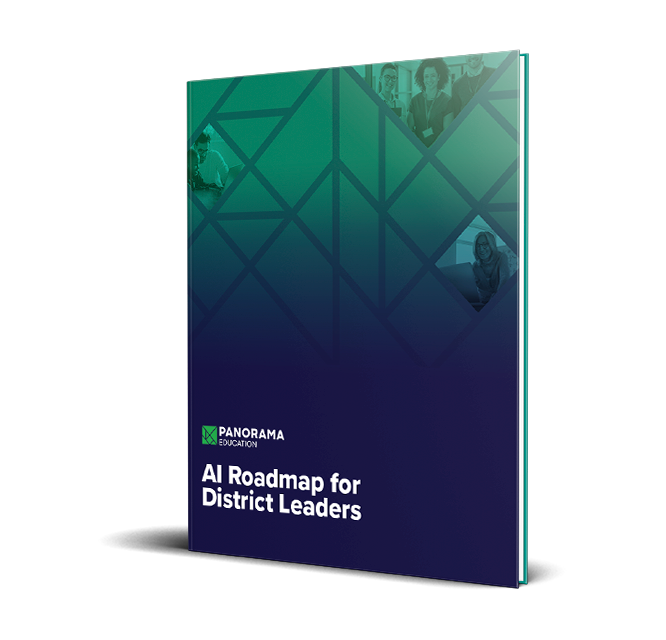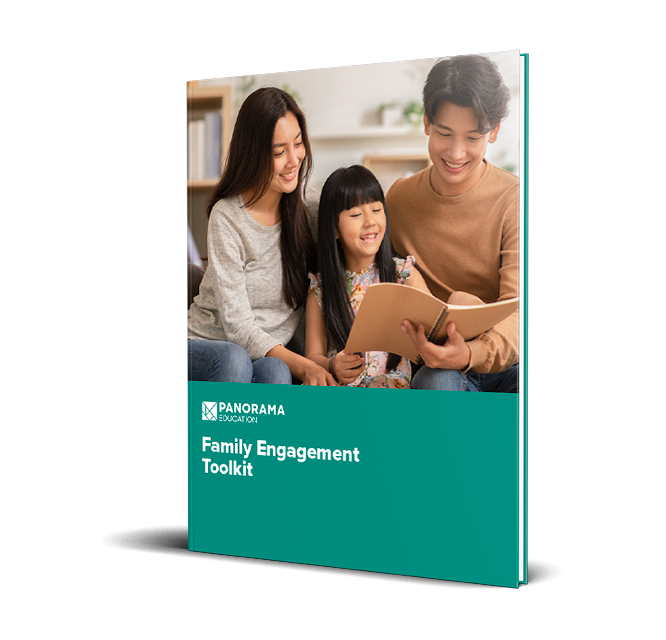In this Intervention Brief, we explore Empathy Interviews, a protocol that school and district leaders can use to engage families in authentic, two-way communication and feedback cycles. Empathy Interviews is one of the 200+ new strategies in Playbook, Panorama’s professional learning library. Through Playbook, educators can access more detailed implementation instructions for Empathy Interviews.
Intervention Name: Empathy InterviewsTier(s): Tier 1
Developmental Stages: Lower Elementary, Upper Elementary, Middle School, High School
Description:
Empathy Interviews are a listening practice that involves one-on-one conversations with students' parents, guardians, and caregivers to:
- Gather feedback and ideas
- Build trust and empathy
- Collect stories to drive classroom-, school-, and district-level decisions
- Gain a more holistic picture of a school community's needs
Download Panorama's Family Engagement Toolkit
How To Implement Empathy Interviews
Through conducting empathy interviews, school leaders and educators can work to build trust and empathy with family members while gaining a more holistic picture of the school community's needs. Here are instructions for implementing Empathy Interviews.
1. Identify Families and Caregivers to Interview
Consider district or school data to determine who you will interview. Seek a diverse mix of perspectives, and be intentional about identifying voices that may not currently be well represented in other family engagement efforts.
2. Create an Empathy Interview Protocol
Well-crafted prompts help to draw out rich stories from stakeholders. Choose four to six questions that allow interviewees to express both positive and challenging experiences within the topic. When creating empathy interview questions, consider: what do you want to learn and why?
|
Sample Question Stems for Empathy Interviews
|
3. Conduct Interviews
There are several logistical considerations to think through when beginning your interview process. Consider who will conduct the interviews, when and where they will take place, and how many interviews you will need.
- Who leads the conversations. The level of trust between the interviewer and the interviewee can impact the quality of empathy interviews. Many districts lean on family liaisons—staff members who are families’ main point of contact when they contact their child’s school—to conduct empathy interviews, as these individuals tend to speak the language of the families they serve.
- When and where. Conduct interviews in person whenever possible. Consider how you can best accommodate families’ needs, and arrange interviews at times and places where they feel most supported.
- Number of interviews. The right number of interviews to conduct will depend on the size of your interview team and the overall purpose of your empathy interviews. Five to ten is a great number, but if you have a bigger team you may wish to conduct more interviews.
4. Analyze Interview Data
After completing the empathy interviews, collect all notes and make the data accessible across your team. Reflect on the stories shared and look for quantitative trends. For example, maybe you notice that a large number of participants mentioned the same barrier to engagement. Be sure to honor those who shared their stories by communicating the value of what was learned, and taking action on their feedback and ideas.
Implementation Tips
- Before identifying stakeholders and conducting interviews, consider bringing your school or district team together to review your community's historical context and any current streams of data (e.g., family engagement surveys).
- Broad, general questions give interviewees the opportunity to think beyond their specific memories at school to their community and home life, which can provide even more context to their responses (as well as a wealth of new ideas that educators may not otherwise consider).
- Consider providing specific training to interviewers to help guide the way interviews are conducted and maintain a structured, consistent process.
Additional Family Engagement Resources
- Family Engagement in Schools: A Comprehensive Guide
- Your Parent-Teacher Conference Agenda
- Family Engagement Strategies from North Carolina’s Largest School District
- Family-School Relationship Survey
Get Survey Questions and Other Resources to Support Family Engagement







